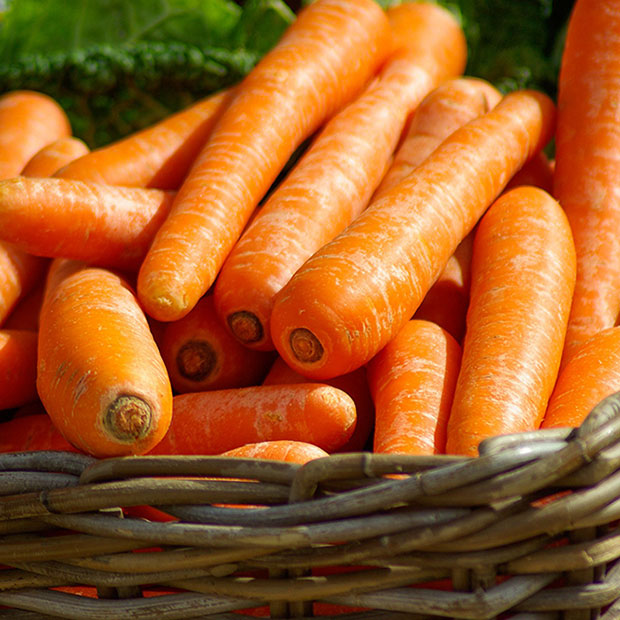
Eating carrots might not really give you great night vision, but certain foods do have eye health benefits.
Choosing good, nutritious foods to eat is critical for overall health. There are also a few ways it will specifically help to keep our eyes healthier, including lowering our risk of developing a variety of sight-threatening conditions as we age. So what nutrients should we be aiming for if our goal is eye-healthy eating?
Vitamin A
Vitamin A is what helps our eyes convert light into brainwaves and it’s crucial to the cornea (the transparent structure covering the front of the eye). A deficiency in vitamin A is the main culprit behind up to half a million children losing their eyesight every year. We can get vitamin A by eating plenty of yellow, orange, and leafy green fruits and vegetables. Our bodies turn the beta-carotene in these foods (which is what gives them their color) into vitamin A.
Zinc
Zinc is an essential “helper molecule” for many healthy processes in our bodies, including making sure vitamin A gets from the liver to the retinas! It doesn’t matter how many carrots we eat if we aren’t getting any zinc to move it around. Oysters are the best source of zinc, but we can also get it from other meats, beans, and nuts.
Lutein and Zeaxanthin
Studies have shown that these two hard-to-pronounce nutrients are linked to a reduced risk of chronic eye diseases like age-related macular degeneration (AMD) and cataracts. The best ways to get them are by eating plenty of eggs and leafy greens.
Omega-3 Fatty Acids
For a strong immune system and good brain function, we need omega-3 fatty acids. Research shows that they also play important roles in visual development and retinal function. The best sources of them are fish, but they’re also present in many other foods.
Vitamin C and Vitamin E
Ascorbic acid (commonly called vitamin C) is an antioxidant that may play a role in decreasing the risk of cataracts, slowing AMD, and reducing general loss of visual acuity. Citrus fruits provide plenty of vitamin C, but most fruits contain some of it too. Vitamin E is also an antioxidant, and it protects our eyes from harmful free radicals that disrupt healthy tissue. We can get it from sweet potatoes and nuts.
Why the Hullabaloo Over Carrots Anyway?
The idea about carrots and night vision actually comes from World War II. The British didn’t want the Nazis to figure out that they were using radar in their planes, so they pushed the idea that their airmen simply ate a lot of carrots to improve their night vision. The messaging campaign was so effective that many people still think it’s true today! Carrots are good for our eyes in the same ways as other orange produce, but they aren’t an eyesight superfood, and eating too many can turn your skin orange!
Diet Matters to Eye Health, but it Isn’t Everything
As important as it is to eat healthy for good eye health, it’s only one part of the equation. We also need to keep up with our regular eye exams, and we especially need to see the eye doctor if anything changes about our eyesight. We’d love to see you if it’s been a while since your last appointment!
Thank you for making us your partners in lifelong eye health!
Top image used under CC0 Public Domain license. Image cropped and modified from original.
The content on this blog is not intended to be a substitute for professional medical advice, diagnosis, or treatment. Always seek the advice of qualified health providers with questions you may have regarding medical conditions.











